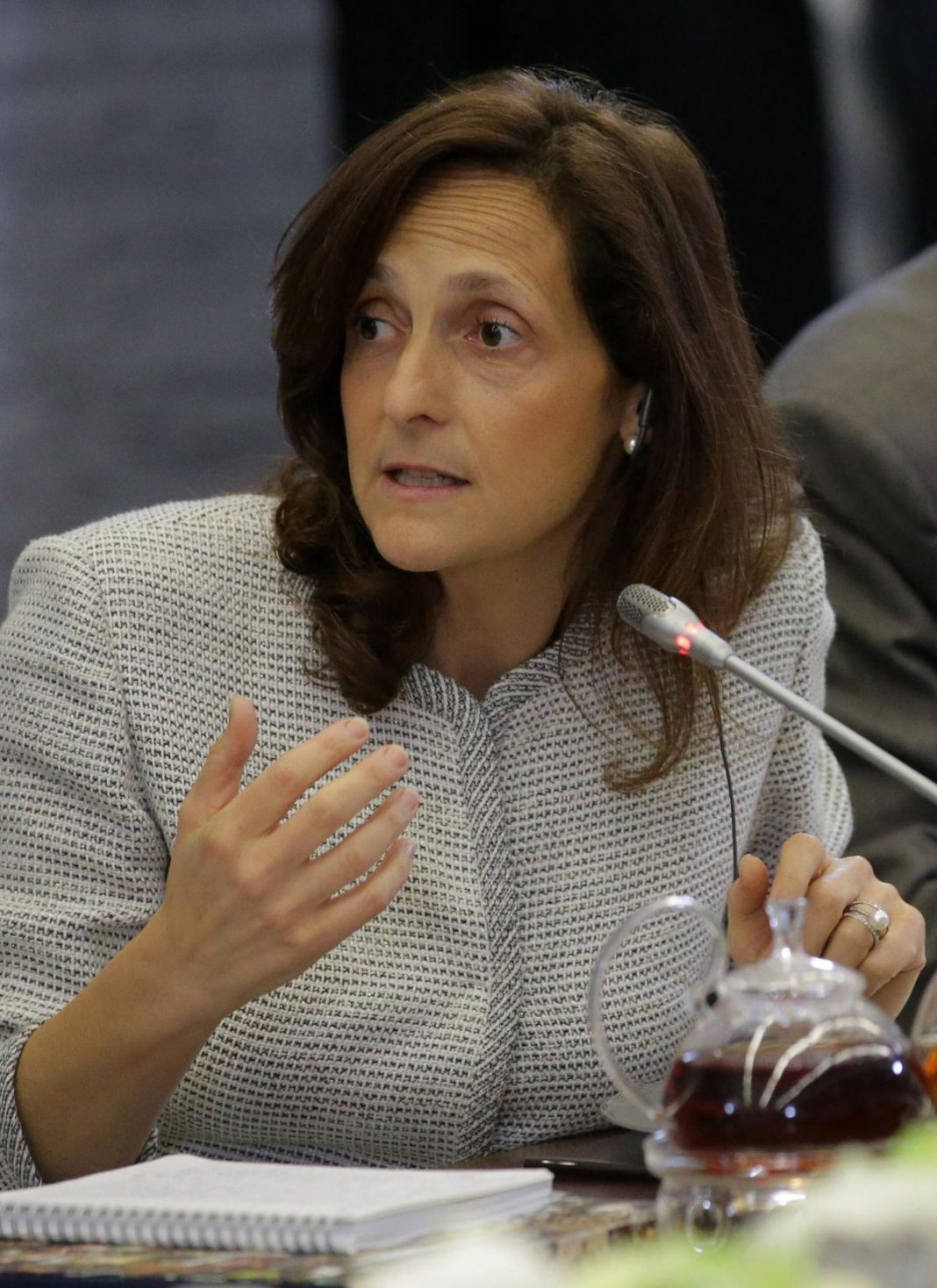
ST PETERSBURG, RUSSIA – JUNE 17, 2016: Reuters Global News Editor Alessandra Galloni (L) and AFP … [+]
TASS via Getty Images
Italian journalist Alessandra Galloni made history on Monday when she was named Reuters’ new editor-in-chief: she’s the first woman in the news organization’s 170 year history to take this role.
Galloni will officially assume the role on April 19, and she brings decades of experience covering global business and political news at Reuters and the Wall Street Journal. She was most recently Reuters’ global managing editor, a role that put her in charge of journalists in 200 places over the world.
Outgoing editor-in-chief Stephen Adler expressed confidence in her leadership, tweeting that he is “thrilled to be passing on the baton to a brilliant editor and great colleague.”
“For 170 years, Reuters has set the standard for independent, trusted and global reporting,” Galloni said in a statement of her own on Monday. “It is an honor to lead a world-class newsroom full of talented, dedicated and inspiring journalists.”
Galloni reportedly plans to achieve Reuters’ growth goals by boosting digital and events business at Reuters.
Reuters News is a wire service and division of Thomson Reuters, a media corporation with business segments that focus on selling data, software and services to law firms, accounting firms and other corporations. Galloni faces the ever-challenging task of promoting Reuters, which has the unique challenge of serving a broad reader base, while keeping her newsroom independent. “[Reuters News] is an important part of the company and is valued across our customer base,” Thomson Reuters CEO Steve Hasker said Monday. “The last year has proven beyond question the value of independent, global, unbiased journalism.”
Galloni’s promotion to the top editorial spot at Reuters is part of a broader trend of women taking lead roles in news organizations across the country: most recently, Dawn Davis replaced Adam Rapoport at Bon Appetit and Mary Margaret became Entertainment Weekly’s first female editor in chief in March. Echoes of this trend have even made its way to college newspapers: namely, the Princeton University’s paper, The Daily Princetonian, reported that all eight Ivy League student papers had women as their highest editorial leaders in 2020.
At the helms of their papers, these editorial leaders have expressed their desire to use their perspectives as female journalists to diversify the newsroom and amplify female voices. “I have been much more conscious of making sure that female voices are heard and that women feel that it’s okay to take up space,” said Emma Treadway, editor-in-chief of The Daily Princetonian, “Since I come from a background where I haven’t always been the one to speak up.”
According to these women, a focus on gender parity often intersects with discussions about equality for other marginalized groups.
“I feel a responsibility to make sure that we are covering our communities of color thoughtfully, properly, and accurately,” noted Hadriana Lowkeron, the editor-in-chief of The Daily Pennsylvanian. This sentiment of equity is shared by many other editorial leaders of Ivy League papers, including Treadway, who describes her journalistic mission as being “all about bringing marginalized groups to the paper … and promoting the lived experiences of different groups of people.”
This new wave of women leaders are leading newsrooms during a time when, in spite of the recent spate of promotions, women remain notoriously underrepresented in media. According to the Harvard Business Review, women appear in a quarter of television, radio, and print news, and women experts are featured in 19% of news stories.
As female journalists around the world look toward Alessandra Galloni as a symbol of journalistic gender equality, Galloni’s leadership marks a new era for women in the industry — a world where women can, in Galloni’s words, lead newsrooms full of “talented, dedicated, and inspiring journalists.”




